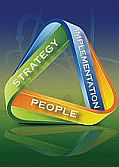Speaker
Adrienne LaFleur
(Los Alamos National Laboratory)
Description
The development of non-destructive assay (NDA) capabilities to improve partial defect verification of spent fuel assemblies is needed to improve the timely detection of the diversion of significant quantities of fissile material. This NDA capability is important to the implementation of integrated safeguards for spent fuel verification by the International Atomic Energy Agency (IAEA) and would improve deterrence of possible diversions by increasing the risk of early detection. A new NDA technique called Passive Neutron Multiplication Counter (PNMC) is currently being developed at Los Alamos National Laboratory (LANL) to improve safeguards measurements of Light Water Reactor (LWR) fuel assemblies. The PNMC uses the ratio of the fast-neutron emission rate to the thermal-neutron emission rate to quantify the neutron multiplication of the item. The fast neutrons versus thermal neutrons are measured using fission chambers (FC) that have differential shielding to isolate fast and thermal energies. The fast-neutron emission rate is directly proportional to the neutron multiplication in the spent fuel assembly; whereas, the thermal-neutron leakage is suppressed by the fissile material absorption in the assembly. These FCs are already implemented in the basic Self-Interrogation Neutron Resonance Densitometry (SINRD) detector package. Experimental measurements of fresh and spent PWR fuel assemblies were performed at LANL and the Korea Atomic Energy Research Institute (KAERI), respectively, using a hybrid PNMC and SINRD detector. The results from these measurements provides valuable experimental data that directly supports safeguards research and development (R&D) efforts on the viability of passive neutron NDA techniques and detector designs for partial defect verification of spent fuel assemblies.
| Country or International Organization | United States of America |
|---|
Author
Adrienne LaFleur
(Los Alamos National Laboratory)
Co-authors
Ho-Dong Kim
(Korea Atomic Energy Research Institute)
Howard Menlove
(Los Alamos National Laboratory)
Jong-Myeong Oh
(Korea Atomic Energy Research Institute)
Se-Hwan Park
(Korea Atomic Energy Research Institute)
Seung Kyu Lee
(Korea Atomic Energy Research Institute)

